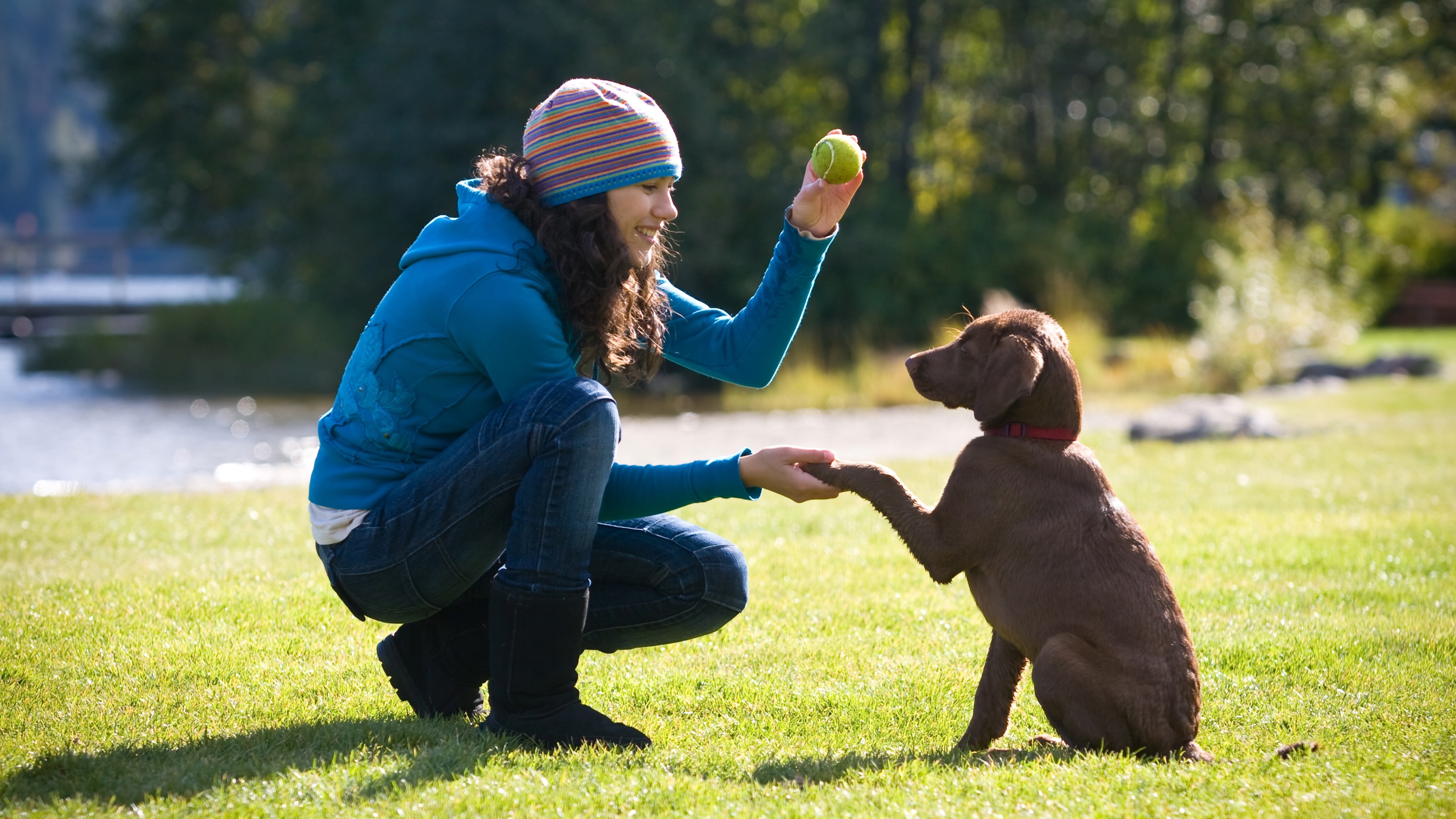Trainer shares seven important behavior skills to train if you want a calm and well mannered dog
Want a better behaved dog? Expert reveals that it all comes down to training in these seven key areas...

Get the best advice, tips and top tech for your beloved Pets
You are now subscribed
Your newsletter sign-up was successful
Want a dog that's calm, happy and well mannered? We hear you! If you're like most pet parents, you likely love your canine companion dearly — but getting them to behave may feel like a challenge some days.
Thankfully, you can save yourself a lot of time reading up on how to deal with a badly behaved dog simply by being aware of the seven most important behavior skills to train in your pup if you want them to behave well, both at home and in public.
To help you learn these, expert trainer Carolyn Martell, the founder of Good Dog Training, has shared a post to Instagram where she outlines potentially problematic behaviors your dog will need help to outgrow so that they can be on their best behavior.
So, grab a bag of the best dog treats (you'll need them for training!) and let's dive in...
A post shared by Good Dog Training (@gooddog.training)
A photo posted by on
1. Be sure to teach your dog not to bite beyond puppyhood: "Biting is a typical behavior in young dogs," explains Martell. "The incessant need to bite hands, ankles and clothing often diminishes as they grow." Still, in early or late adolescence you'll want to ensure you know how to stop a puppy biting, mouthing or nipping so that this behavior doesn't carry on into adulthood.
2. Address aggressive biting immediately: Different from puppy biting, aggressive biting is a serious issue that Martell says your dog will not outgrow on their own. "Without early intervention, aggressive behavior often worsens over time. Seek help now for a well-balanced and happy canine companion."
3. Potty train your dog: "Successfully house training your puppy means fewer accidents, especially as they gain bladder and bowel control. However, accidents can still occur if left too long or your pup is unwell, and urine marking won't be outgrown," says Martell. Here's how to potty train a puppy — trust us, this skill is one you definitely want your dog to master!
Get the best advice, tips and top tech for your beloved Pets
4. Help your dog master healthy chewing habits: While chewing is a normal doggy behavior, the last thing you want is all of your clothes, shoes and furniture filled with bite marks. Although some dogs will outgrow their desire to chew (or at least be less destructive), Martell says it's important to provide your dog with things like the longest lasting dog chews to satisfy this natural instinct.
5. Put a stop to resource guarding: "Growling when you reach for or take something away from your puppy is a concerning behavior that won't resolve on its own," explains Martell, who goes on to say that resource guarding in dogs typically worsens over time. "Seeking help early is crucial to address and manage this behavior effectively."
6. Master the art of loose leash walking: If you want to put a stop to your dog dragging you down the street, you have to take the time to train them to walk well on a leash. "Teaching good walking behavior early is crucial for a well-behaved companion," says Martell.
7. Train your dog not to jump up on people: "Jumping behaviors in dogs, whether on people or counters, don't naturally fade away," Martell explains. "Your dog won't outgrow them until their hips are too arthritic to jump. Start teaching your pup early that jumping doesn't pay off to curb these behaviors effectively."
For more helpful resources that will support you in implementing the training tips listed above, check out our guides to how to stop a dog from jumping up and the most common loose leash walking mistakes (and how to avoid them).

Kathryn is a freelance writer who has been a member of the PetsRadar family since it launched in 2020. Highly experienced in her field, she's driven by a desire to provide pet parents with accurate, timely, and informative content that enables them to provide their fur friends with everything they need to thrive.
Kathryn works closely with vets and trainers to ensure all articles offer the most up-to-date information across a range of pet-related fields, from insights into health and behavior issues to tips on products and training.
When she’s not busy crafting the perfect sentence for her features, buying guides and news pieces, she can be found hanging out with her family (which includes one super sassy cat and a kitten), drinking copious amounts of Jasmine tea and reading all the books.
She has written for a range of publications, including Fit&Well, Top Ten Reviews, LiveScience, Goodto, and Product Hunt.
